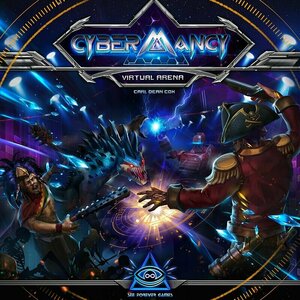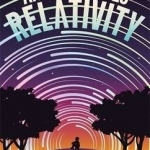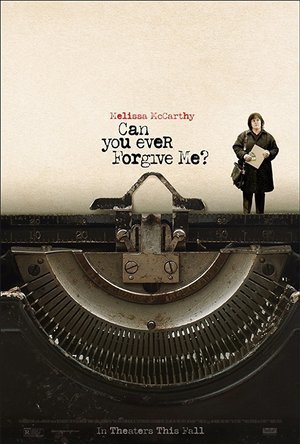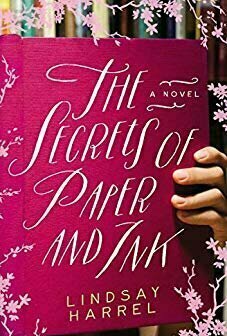Search
Search results
Debbiereadsbook (1650 KP) rated Sticky For You (The Rhubarb Effect #1) in Books
Sep 20, 2024
Tim is a live wire and he likes to sing!
Independent reviewer for Archaeolibrarian, I was gifted my copy of this book.
Did you ever read a book, and think "What the ever loving heck did I just read??" (only, you know, more sweary words than some review sites will allow!) Well, this is such a book!
Max moves to Valentine Growville with his odd little pride and immediately feels at home. Meeting Tim, his mate, knocked him for six. I mean, Max is an Alpha lion and Tim is. . .well . .Tim is rhubarb. A rhubarb omega. Can they make this work?
It's so much fun, it really is and I laughed a lot, A LOT reading this book and I rarely react out loud when reading, (listening is a whole 'nother matter, though!)
Max is an Alpha of a pride of lions, bulls, llamas and other things that I forget already but they all have a love of rhubarb. Moving to Growville was a necessity, since they got hounded out their last pride. Tim is.. . . excitable! He really is a bit of a live-wire and he likes to sing. Especially once he realises he is Max' mate and Max can hear him in his head. Singing becomes the easiest way to woo Max and I have to admit, I found myself singing along with those songs that Tim sang, but changed some words for to make it fit better for him and Max.
It's steamy . . but in a kinda weird way. The way rhubarb mate is a little offputting, I will admit, but now I know what to expect, I'll be better prepared.
It is a lot of fun, it really is, right up to the point where things go wrong for Tim, but if he had just talked to Max, it could all have been avoided.
And also the point where the real monsters come to town. But that was not explained, and you have to piece the clues already thrown at you to figure out who they are. I'm fairly certain, but with Sayle at the helm, one can never be too sure!
I loved the references to fingerlings!
I love Sayle, you know I do, and I've read some Brown before, with 4 and 5 star reads from her on my shelves. How they came up with this idea, I have no clue, but it really was a fun read! The setting is set nicely for book two, and I see now whay the whole of Max' pride love rhubarb!
Will it win any literary awards? Nope, but I don't care cos I thoruoghly enjoyed it!
4 very funny stars
*same worded review will appear elsewhere
Did you ever read a book, and think "What the ever loving heck did I just read??" (only, you know, more sweary words than some review sites will allow!) Well, this is such a book!
Max moves to Valentine Growville with his odd little pride and immediately feels at home. Meeting Tim, his mate, knocked him for six. I mean, Max is an Alpha lion and Tim is. . .well . .Tim is rhubarb. A rhubarb omega. Can they make this work?
It's so much fun, it really is and I laughed a lot, A LOT reading this book and I rarely react out loud when reading, (listening is a whole 'nother matter, though!)
Max is an Alpha of a pride of lions, bulls, llamas and other things that I forget already but they all have a love of rhubarb. Moving to Growville was a necessity, since they got hounded out their last pride. Tim is.. . . excitable! He really is a bit of a live-wire and he likes to sing. Especially once he realises he is Max' mate and Max can hear him in his head. Singing becomes the easiest way to woo Max and I have to admit, I found myself singing along with those songs that Tim sang, but changed some words for to make it fit better for him and Max.
It's steamy . . but in a kinda weird way. The way rhubarb mate is a little offputting, I will admit, but now I know what to expect, I'll be better prepared.
It is a lot of fun, it really is, right up to the point where things go wrong for Tim, but if he had just talked to Max, it could all have been avoided.
And also the point where the real monsters come to town. But that was not explained, and you have to piece the clues already thrown at you to figure out who they are. I'm fairly certain, but with Sayle at the helm, one can never be too sure!
I loved the references to fingerlings!
I love Sayle, you know I do, and I've read some Brown before, with 4 and 5 star reads from her on my shelves. How they came up with this idea, I have no clue, but it really was a fun read! The setting is set nicely for book two, and I see now whay the whole of Max' pride love rhubarb!
Will it win any literary awards? Nope, but I don't care cos I thoruoghly enjoyed it!
4 very funny stars
*same worded review will appear elsewhere
Purple Phoenix Games (2266 KP) rated Cybermancy: Virtual Arena in Tabletop Games
Mar 31, 2020 (Updated Mar 31, 2020)
I know there are several games out there that pit literary characters against each other, or figures from actual history. But have you ever wanted to assemble a team with the likes of Joan of Arc, Mulan, Pancho Villa, and Vlad the Impaler vs undead opponents like Sid Viscous, Max Lemmon, DJ Jazzy Deth, and football star Tom Brainy? Well now you can. This is Cybermancy: Virtual Arena.
A game of Cybermancy: Virtual Arena (which I will refer to as simply Cybermancy from here on out) is a player-to-player dueling card game where one Cybermancer is attempting to lower the other Cybermancer’s health points (HP) to zero using summoned creatures from their hand. Will you be able to defeat your opponent before they can setup any defenses or enough firepower to punish your HP? Get out there, Cybermancer!
DISCLAIMER: We were provided a prototype copy of this game for the purposes of this review. These are preview copy components, and I do not know for sure if the final components will be any different from these shown. Also, it is not my intention to detail every rule in the game, as there are just too many. You are invited to download the rulebook, back the game through the Kickstarter campaign beginning April 1, 2020, purchase it from your FLGS, or through any retailers stocking it after fulfillment. -T
There is quite a bit of setup to Cybermancy if you care to assemble your team yourself. The rulebook has a number of starter deck suggestions. Players will need to assemble a team of 30 creatures for their deck. From this, draw seven cards to begin. Each player will need to draw five cards each of CPU and RAM cards – these are the currency of the game and what is needed to summon creatures from hand. Each player will need a health tracker and a CPU/RAM tracker. The game is now setup and ready to play!
Cybermancy is a dueling game played over rounds, and each round will follow the same general structure, but may not exactly mimic each other during play. The phases are: Main, Discard, Draw, Refresh, and Advance Power Marker. Generally, the main action of the game takes place during the aptly-named Main phase. This is where players will spend the CPU/RAM cards they have drawn to summon and attack with their creatures. Not all creatures can be summoned and attack in the same round, and creatures can only be summoned if the player spends enough in cards while also respecting the maximum CPU/RAM limitations set in the CPU/RAM tracker. Example: during the first round, only creatures with a 1 CPU / 1 RAM strength can be summoned from hand because the CPU/RAM tracker begins the game at 1 / 1. The last phase of the round is Advance Power Marker (only one), so this is the way CPU/RAM maximum limits are increased.
After the Main phase, the power cards (CPU/RAM) used, and the destroyed creatures will be discarded. The next phase is Drawing one card from each deck (Creature Draw, CPU, RAM) to be added to the players’ pools. To Refresh during the next phase, all Buffered (kneeling) creatures will be stood up to be used next round. Advance the Power token of your choice and you are ready to play the next round.
Rounds continue in this fashion until one Cybermancer has reduced their opponent’s HP to zero and immediately proclaims victory!
Components. Again, this is a prototype copy of the game, so the components may not be 100% similar to what would be shipped as a result of a successful Kickstarter campaign. That said, the first thing I want to do is shout out to the art in this game. The card art is absolutely stellar and engaging. I find myself paying more attention to the art than I should while playing, and to me, that’s not a bad thing. The cards are good quality, the cardboard chits to track buffs and debuffs are okay, and the card layout is mostly good. I say mostly because as I read the summon costs for the creatures, I read them left to right on the top of the creature card, which is CPU then RAM. However, the CPU/RAM tracking card has RAM on top and CPU on bottom. I am already trying my best to strategize for victory, I wish I didn’t have to think about which power is which on that card. The health tracking cards are good, and similar to what you find in Star/Hero Realms and various others. So components are great, aside from my one qualm.
The game is good. You can strategize all you want, but ultimately your turns are limited by the power costs of the creatures and which creatures you have drawn. At the beginning of the game if you do not like what you have drawn for a starting hand a re-draw is possible for all decks. That ability is one and done though, and sometimes it would be helpful to have a flush of the hand and a redraw, or a way to otherwise rid yourself of cards you cannot use yet or just don’t like.
That said, I like Cybermancy quite a bit. I feel like I am playing a video game when I play this game. The art is amazing, the concept and theme are attractive. Being able to invoke the powers of d’Artagnan to combat zombified Kurt Cobain is just so satisfying. If you enjoy dueling card games, or games where you can employ beings of literary and actual history, then this game is certainly for you. Do check out the Kickstarter campaign that is starting April 1, 2020. I am really looking forward to seeing how far this one goes!
A game of Cybermancy: Virtual Arena (which I will refer to as simply Cybermancy from here on out) is a player-to-player dueling card game where one Cybermancer is attempting to lower the other Cybermancer’s health points (HP) to zero using summoned creatures from their hand. Will you be able to defeat your opponent before they can setup any defenses or enough firepower to punish your HP? Get out there, Cybermancer!
DISCLAIMER: We were provided a prototype copy of this game for the purposes of this review. These are preview copy components, and I do not know for sure if the final components will be any different from these shown. Also, it is not my intention to detail every rule in the game, as there are just too many. You are invited to download the rulebook, back the game through the Kickstarter campaign beginning April 1, 2020, purchase it from your FLGS, or through any retailers stocking it after fulfillment. -T
There is quite a bit of setup to Cybermancy if you care to assemble your team yourself. The rulebook has a number of starter deck suggestions. Players will need to assemble a team of 30 creatures for their deck. From this, draw seven cards to begin. Each player will need to draw five cards each of CPU and RAM cards – these are the currency of the game and what is needed to summon creatures from hand. Each player will need a health tracker and a CPU/RAM tracker. The game is now setup and ready to play!
Cybermancy is a dueling game played over rounds, and each round will follow the same general structure, but may not exactly mimic each other during play. The phases are: Main, Discard, Draw, Refresh, and Advance Power Marker. Generally, the main action of the game takes place during the aptly-named Main phase. This is where players will spend the CPU/RAM cards they have drawn to summon and attack with their creatures. Not all creatures can be summoned and attack in the same round, and creatures can only be summoned if the player spends enough in cards while also respecting the maximum CPU/RAM limitations set in the CPU/RAM tracker. Example: during the first round, only creatures with a 1 CPU / 1 RAM strength can be summoned from hand because the CPU/RAM tracker begins the game at 1 / 1. The last phase of the round is Advance Power Marker (only one), so this is the way CPU/RAM maximum limits are increased.
After the Main phase, the power cards (CPU/RAM) used, and the destroyed creatures will be discarded. The next phase is Drawing one card from each deck (Creature Draw, CPU, RAM) to be added to the players’ pools. To Refresh during the next phase, all Buffered (kneeling) creatures will be stood up to be used next round. Advance the Power token of your choice and you are ready to play the next round.
Rounds continue in this fashion until one Cybermancer has reduced their opponent’s HP to zero and immediately proclaims victory!
Components. Again, this is a prototype copy of the game, so the components may not be 100% similar to what would be shipped as a result of a successful Kickstarter campaign. That said, the first thing I want to do is shout out to the art in this game. The card art is absolutely stellar and engaging. I find myself paying more attention to the art than I should while playing, and to me, that’s not a bad thing. The cards are good quality, the cardboard chits to track buffs and debuffs are okay, and the card layout is mostly good. I say mostly because as I read the summon costs for the creatures, I read them left to right on the top of the creature card, which is CPU then RAM. However, the CPU/RAM tracking card has RAM on top and CPU on bottom. I am already trying my best to strategize for victory, I wish I didn’t have to think about which power is which on that card. The health tracking cards are good, and similar to what you find in Star/Hero Realms and various others. So components are great, aside from my one qualm.
The game is good. You can strategize all you want, but ultimately your turns are limited by the power costs of the creatures and which creatures you have drawn. At the beginning of the game if you do not like what you have drawn for a starting hand a re-draw is possible for all decks. That ability is one and done though, and sometimes it would be helpful to have a flush of the hand and a redraw, or a way to otherwise rid yourself of cards you cannot use yet or just don’t like.
That said, I like Cybermancy quite a bit. I feel like I am playing a video game when I play this game. The art is amazing, the concept and theme are attractive. Being able to invoke the powers of d’Artagnan to combat zombified Kurt Cobain is just so satisfying. If you enjoy dueling card games, or games where you can employ beings of literary and actual history, then this game is certainly for you. Do check out the Kickstarter campaign that is starting April 1, 2020. I am really looking forward to seeing how far this one goes!
Gareth von Kallenbach (980 KP) rated T2 Trainspotting (2017) in Movies
Jul 12, 2019
The first time I saw Trainspotting was my senior year of high school. At the time, I knew that I wanted to get involved in film, and I really did for about ¾ of a year after I graduated. I looked at movies for their artistry and cinematography even at a young age. I was a band geek, so music was also things I would love about movies. I was deep for a 17-year-old, or so I thought any way. But I explain this to you so you don’t think that I loved this movie simply because of the drug use or humor it presented. I have always been of the mind to find something I like about a movie, watch it for what it is, and try to just find the enjoyment value (I know, weird coming from a film reviewer). I didn’t even have to try for Trainspotting. It was the complete package, and ground breaking. It also introduced me to Ewan McGregor, who is one of my favorite actors. I loved the movie so much, I bought Irvine Welsh’s book that the movie was based on of the same title, Trainspotting, which I highly recommend simply for the fact that it’s written in phonetic Scottish. I never picked up Porno, the literary sequel to Trainspotting, but I hear it is bizarre and will need to pick it up, but not because of this movie. I’ll explain in a moment.
Naturally, when the announcement was made for a second Trainspotting movie, I was both excited and terrified at the same time. The first was so good, why did Hollywood need to ruin it with a sequel that has a bigger budget. What was promising was that it was announced that the entire cast of characters (that survived from the first film) would be back, including Diane (Kelly MacDonald). But it’s been 20 years. Typically, when you see sequels come out even after only 10 years, the whole film seems a contrite, forced replication of the first. Hell, look at all the criticism for the Hangover films being exactly that, and they were only a few years apart. Whether the script feels forced just for the sake of a sequel, or the actors are trying too hard to be the character they played many years prior, it never quite works. So, as we neared the release date, I was getting more and more weary of seeing the film. Then, the trailer dropped.
Damn the trailer looked good. And I will tell you, the movie did not fall into the trap of forced sequels. The main cast came back and played the characters perfectly. Not as they were, but as the people they grew to be over the 20-year period. The plot was fun and pointless, with all of the same charm as its predecessor. I saw the movie with fellow SKNR staffer Joshua Aja, and we had a pretty good conversation following the film. We both came to the same conclusion, that neither of us could remember the last time we saw a film that just that good.
So now to the actual meat of the review itself. What was the movie about? Well, I won’t give away too much, but I will give you a quick recap of the events leading up to this film. Basically, do you remember the end of Trainspotting? Renton (Ewan McGregor), Spud (Ewen Bremner), Sick Boy (Jonny Lee Miller), and Begbie (Robert Carlyle) had successfully pulled off a heist, and Renton was making off with the money while everyone slept, except Spud of course who saw Renton leaving but didn’t say anything. As a result, Renton left Spud’s share of the cash for him in a locker. Okay; all caught up.
T2 Trainspotting picks up 20 years later. Renton comes back to Scotland because his mother passed away, he ends up reuniting with Spud, and eventually Sick Boy, who we now know by his real name, Simon. Begbie is in prison because, well… he’s Begbie, but he doesn’t stay there long. Tempers fly, old feelings flare, and not every reunited moment is met with glee. But soon enough, Renton, Simon and Spud are drawn into old habits, though not old drugs, and start to build money up to open a ‘sauna’ (read: undercover brothel) for Simon’s girlfriend, Veronika (Angela Nedyalkova). It’s not long before Begbie shows up and starts mucking things up leading to a suspenseful conclusion between Renton, Simon and Begbie.
That’s all I can say. There was an excellent use of the history from the first film, and of course we get another fantastic ‘Choose Life’ speech from Renton. The soundtrack, while not quite as good as the first, still holds its own very well. And be sure to look for the Bowie tribute, since it was he who helped Danny Boyle obtain a lot of music rights on the cheap for the first film. And, you will find Spud’s writings throughout the movie to be lifted, verbatim, from the Trainspotting by Irvine Welsh. But what’s interesting, is that there is not a lot that relates this film to the literary sequel, Porno. Much of the plot of this film is taken from, or at least inspired by, parts of the book that were not used in the first film. That combined with some new writing and storytelling from Irvine Welsh and John Hodge.
Bottom line: if you liked the Trainspotting even in the slightest, you will absolutely enjoy T2 Trainspotting. A phenomenal job by cast, crew, and writers, and an excellent soundtrack will leave you wanting a trilogy. This is only the third film I have given a perfect score to in my 7 years of reviewing films, and it is well deserved. Go see this movie.
Naturally, when the announcement was made for a second Trainspotting movie, I was both excited and terrified at the same time. The first was so good, why did Hollywood need to ruin it with a sequel that has a bigger budget. What was promising was that it was announced that the entire cast of characters (that survived from the first film) would be back, including Diane (Kelly MacDonald). But it’s been 20 years. Typically, when you see sequels come out even after only 10 years, the whole film seems a contrite, forced replication of the first. Hell, look at all the criticism for the Hangover films being exactly that, and they were only a few years apart. Whether the script feels forced just for the sake of a sequel, or the actors are trying too hard to be the character they played many years prior, it never quite works. So, as we neared the release date, I was getting more and more weary of seeing the film. Then, the trailer dropped.
Damn the trailer looked good. And I will tell you, the movie did not fall into the trap of forced sequels. The main cast came back and played the characters perfectly. Not as they were, but as the people they grew to be over the 20-year period. The plot was fun and pointless, with all of the same charm as its predecessor. I saw the movie with fellow SKNR staffer Joshua Aja, and we had a pretty good conversation following the film. We both came to the same conclusion, that neither of us could remember the last time we saw a film that just that good.
So now to the actual meat of the review itself. What was the movie about? Well, I won’t give away too much, but I will give you a quick recap of the events leading up to this film. Basically, do you remember the end of Trainspotting? Renton (Ewan McGregor), Spud (Ewen Bremner), Sick Boy (Jonny Lee Miller), and Begbie (Robert Carlyle) had successfully pulled off a heist, and Renton was making off with the money while everyone slept, except Spud of course who saw Renton leaving but didn’t say anything. As a result, Renton left Spud’s share of the cash for him in a locker. Okay; all caught up.
T2 Trainspotting picks up 20 years later. Renton comes back to Scotland because his mother passed away, he ends up reuniting with Spud, and eventually Sick Boy, who we now know by his real name, Simon. Begbie is in prison because, well… he’s Begbie, but he doesn’t stay there long. Tempers fly, old feelings flare, and not every reunited moment is met with glee. But soon enough, Renton, Simon and Spud are drawn into old habits, though not old drugs, and start to build money up to open a ‘sauna’ (read: undercover brothel) for Simon’s girlfriend, Veronika (Angela Nedyalkova). It’s not long before Begbie shows up and starts mucking things up leading to a suspenseful conclusion between Renton, Simon and Begbie.
That’s all I can say. There was an excellent use of the history from the first film, and of course we get another fantastic ‘Choose Life’ speech from Renton. The soundtrack, while not quite as good as the first, still holds its own very well. And be sure to look for the Bowie tribute, since it was he who helped Danny Boyle obtain a lot of music rights on the cheap for the first film. And, you will find Spud’s writings throughout the movie to be lifted, verbatim, from the Trainspotting by Irvine Welsh. But what’s interesting, is that there is not a lot that relates this film to the literary sequel, Porno. Much of the plot of this film is taken from, or at least inspired by, parts of the book that were not used in the first film. That combined with some new writing and storytelling from Irvine Welsh and John Hodge.
Bottom line: if you liked the Trainspotting even in the slightest, you will absolutely enjoy T2 Trainspotting. A phenomenal job by cast, crew, and writers, and an excellent soundtrack will leave you wanting a trilogy. This is only the third film I have given a perfect score to in my 7 years of reviewing films, and it is well deserved. Go see this movie.
Kristy H (1252 KP) rated The Identicals in Books
Feb 1, 2018
Harper and Tabitha Frost--identical twins--grew up thick as thieves, the best of friends. But their parents' divorce at seventeen cruelly separated the girls, with each being allocated to a parent and sent off to live with them on a separate island. Harper goes with their more laid-back father, Billy, to Martha's Vineyard, while Tabitha goes with their formidable and exacting mother, renowned fashion designer Eleanor Roxie-Frost. The twins' relationship is then further destroyed by a tragic event in early adulthood. They've barely spoken since, and it's only the death of their father that forces them to reluctantly reunite on the Vineyard for Billy's memorial service. It also allows Harper a chance to see her popular but rebellious teenage niece, Ainsley, who is struggling under Tabitha's freestyle, lax parenting. Harper and Tabitha are set in their ways--and resolute about never forming a friendship. Can Billy's death change the way the twins feel, or is it too late?
I've read a handful of Hilderbrand's novels by now and many of her books have a similar, beachy feel, often with a focus on twins (this makes more sense now, knowing that Hilderbrand is herself a twin) and wayward teens. There's always rampant gossip on Nantucket, which is her usual locale, yet you'll always be left wanting to visit (and in this case, the Vineyard as well). Things are typically a bit predictable and there's always a romance or two thrown in.
Still, this book especially peaked my interest as I have (young) twin daughters. I was pleasantly surprised by the plot and quite captivated by the book. It's a perfect beach read. Obviously you're not going to find a literary masterpiece, but if you're looking for escape, it's perfect. The plot is exciting, the characters complex enough (and up to their elbows in trouble), and the summery location makes you feel as if you're at the beach, experiencing the crazy gossip as it happens. I found myself quite drawn to all the characters--which doesn't always happen in novels like this--and especially liked headstrong teenage Ainsley and poor Harper, who just can't seem to get her life together.
Sure, things happen rather as anticipated at times and some of the characters' changes are pretty foreseeable. But they are a fun group and the supporting cast really adds depth to the story. The epilogue is a cute addition, as well. Overall, this is a pleasant, entertaining beach read and a step above many in the genre.
You can read my review of Hilderbrand's novel THE RUMOR <a href="https://www.goodreads.com/book/show/23341607-the-rumor">here</a>;.
<center><a href="http://justacatandabookatherside.blogspot.com/">Blog</a>; ~ <a href="https://twitter.com/mwcmoto">Twitter</a>; ~ <a href="https://www.facebook.com/justacatandabook/">Facebook</a>; ~ <a href="https://plus.google.com/u/0/+KristyHamiltonbooks">Google+</a>; ~ <a href="https://www.instagram.com/justacatandabook/">Instagram</a>; </center>
I've read a handful of Hilderbrand's novels by now and many of her books have a similar, beachy feel, often with a focus on twins (this makes more sense now, knowing that Hilderbrand is herself a twin) and wayward teens. There's always rampant gossip on Nantucket, which is her usual locale, yet you'll always be left wanting to visit (and in this case, the Vineyard as well). Things are typically a bit predictable and there's always a romance or two thrown in.
Still, this book especially peaked my interest as I have (young) twin daughters. I was pleasantly surprised by the plot and quite captivated by the book. It's a perfect beach read. Obviously you're not going to find a literary masterpiece, but if you're looking for escape, it's perfect. The plot is exciting, the characters complex enough (and up to their elbows in trouble), and the summery location makes you feel as if you're at the beach, experiencing the crazy gossip as it happens. I found myself quite drawn to all the characters--which doesn't always happen in novels like this--and especially liked headstrong teenage Ainsley and poor Harper, who just can't seem to get her life together.
Sure, things happen rather as anticipated at times and some of the characters' changes are pretty foreseeable. But they are a fun group and the supporting cast really adds depth to the story. The epilogue is a cute addition, as well. Overall, this is a pleasant, entertaining beach read and a step above many in the genre.
You can read my review of Hilderbrand's novel THE RUMOR <a href="https://www.goodreads.com/book/show/23341607-the-rumor">here</a>;.
<center><a href="http://justacatandabookatherside.blogspot.com/">Blog</a>; ~ <a href="https://twitter.com/mwcmoto">Twitter</a>; ~ <a href="https://www.facebook.com/justacatandabook/">Facebook</a>; ~ <a href="https://plus.google.com/u/0/+KristyHamiltonbooks">Google+</a>; ~ <a href="https://www.instagram.com/justacatandabook/">Instagram</a>; </center>
Louise (64 KP) rated Relativity in Books
Jul 2, 2018
When I was asked to join the blog tour for Relativity I jumped at the chance. The blurb really intrigued me and also there is stunning praise on the front cover from three authors that I have read before: Graeme Simsion, S J Watson and Christos Tsiolkas. With such high praise from these authors I knew I had to read it.
Relativity follows Ethan Forsythe, twelve years old and a very clever young man who has a particular obsession with physics and astronomy. Ethan lives with his single mother Claire in Sydney, as he is getting older he is asking more and more questions about his fathers whereabouts which Claire is particularly hesitant about answering and very mysterious much to Ethans annoyance.
When Ethan gets taken ill, secrets start to unfold and the reasons for his current illness are revealed and how it's connected to his past and father.
I had never heard of Relativity until I was asked to do this Blog Tour, I like to go into books knowing as little as possible so I can form my own opinions and not waiting for twists and turns. Relativity took me by surprise,this is what you would classify as family drama/literary fiction and I devoured this book, needing to know what happened, why Ethan was ill? Why his father wasn't around?
I thought the writing style and prose of this book are beautifully written. I also liked the science parts even sometimes when I couldn't get my head around (I am not great at science). You don't have to be great at physics to follow this book but I think Antonia Hayes must have put a lot of research into the topics that were explored within.
The story is told from third person past tense narrative from the perspectives of Ethan, Claire and Mark. The characters are well-developed,complex and three dimensional. Ethan's character was written really well and believable for a twelve-year-old boy, he would say some profound things and had me laughing out loud.
Mum,want to know something crazy? Statistically, the probability that I exist is basically zero. Did you know you were born with two million eggs?
I could really empathise with Claire, being a parent myself you will do anything to protect your child and what you feel is best for them. Her anxiety that she was experiencing was palpable, what with introducing Mark back into Ethan's life but there were points where I felt she made some bad decisions and should have discussed it more with Ethan.
I liked reading from Marks perspective, especially towards the end when you get more of a back story, though there is parts sprinkled throughout the book about their relationship and extended family.
Relativity is beautiful, realistic and a well researched novel and definitely recommend picking it up. This is a great debut novel and I am excited to see what Hayes does next.
Relativity follows Ethan Forsythe, twelve years old and a very clever young man who has a particular obsession with physics and astronomy. Ethan lives with his single mother Claire in Sydney, as he is getting older he is asking more and more questions about his fathers whereabouts which Claire is particularly hesitant about answering and very mysterious much to Ethans annoyance.
When Ethan gets taken ill, secrets start to unfold and the reasons for his current illness are revealed and how it's connected to his past and father.
I had never heard of Relativity until I was asked to do this Blog Tour, I like to go into books knowing as little as possible so I can form my own opinions and not waiting for twists and turns. Relativity took me by surprise,this is what you would classify as family drama/literary fiction and I devoured this book, needing to know what happened, why Ethan was ill? Why his father wasn't around?
I thought the writing style and prose of this book are beautifully written. I also liked the science parts even sometimes when I couldn't get my head around (I am not great at science). You don't have to be great at physics to follow this book but I think Antonia Hayes must have put a lot of research into the topics that were explored within.
The story is told from third person past tense narrative from the perspectives of Ethan, Claire and Mark. The characters are well-developed,complex and three dimensional. Ethan's character was written really well and believable for a twelve-year-old boy, he would say some profound things and had me laughing out loud.
Mum,want to know something crazy? Statistically, the probability that I exist is basically zero. Did you know you were born with two million eggs?
I could really empathise with Claire, being a parent myself you will do anything to protect your child and what you feel is best for them. Her anxiety that she was experiencing was palpable, what with introducing Mark back into Ethan's life but there were points where I felt she made some bad decisions and should have discussed it more with Ethan.
I liked reading from Marks perspective, especially towards the end when you get more of a back story, though there is parts sprinkled throughout the book about their relationship and extended family.
Relativity is beautiful, realistic and a well researched novel and definitely recommend picking it up. This is a great debut novel and I am excited to see what Hayes does next.
BankofMarquis (1832 KP) rated Can You Ever Forgive Me? (2018) in Movies
Nov 11, 2018
Strong performances eleveates this "Art House" film.
With not a whole lot of interest filling out the screens at the multi-plexes at this time, I thought I'd head to the "Art House" to check out Melissa McCarthy in CAN YOU EVER FORGIVE ME? This film is garnering strong Oscar buzz for McCarthy's performance and I figured I'd see for myself.
And...darn it all...after a slow start, it does turn into an Oscar worthy performance, after all.
Telling the true tale of writer Lee Israel (based on her memoir), CYEFM tells the story of Israel's descent into criminal behavior to make ends meet by forging literary documents from the past and selling them as the real deal.
Starring as Israel, McCarthy drops all the artifice and bluster that she usually brings to her comedic characters to bring us a "non-people" person (Israel's own words) who is down on her luck. I was a bit skeptical of this performance in the first half of the film for I thought she had fallen victim to the "comedian trying their hands at a serious role" syndrome, being WAY too serious and glum, without a hint of humor. But, in the 2nd half of the film, McCarthy really finds this character and we begin to see a fully formed 3 dimensional person emerging on the screen - warts and all. And, when Israel/McCarthy gives the speech that will be shown at her Oscar nomination, she shows that she is fully deserving of any accolades that might come her way. It is a strong, humanistic portrayal of a person trying to figure it out - and learning that the shortcut probably isn't the best way to go.
Aiding her in her journey - and in this film - is Richard E. Grant as Jack Hock, another lost soul trying to make it in this world while having a good time doing it. Grant has the "showier" of the 2 roles and he revels in his moments. I would be fine with Grant being nominated as well - it is that strong of a performance and balances McCarthy's character wonderfully.
I did have a problem with the first 1/2 of this film, mainly for I disliked the 2 main characters being portrayed, they are certainly NOT 2 people to root for and I felt the film was only showing 1 dimensional stereotypes, but once McCarthy and Grant devise the forgery scheme, the film - and the performances - get very interesting, and multi-layered, indeed.
Keep in mind that this is an "Art House" film, by that I mean "talky". There isn't a whole lot of action and a TON of atmosphere and dialogue, not the type of film for everyone, but for those of you who like this sort of thing, you'll be rewarded by strong performances that lifts this film to a higher level.
Letter Grade: B+
8 (out of 10) stars and you can take that to the Bank(ofMarquis)
And...darn it all...after a slow start, it does turn into an Oscar worthy performance, after all.
Telling the true tale of writer Lee Israel (based on her memoir), CYEFM tells the story of Israel's descent into criminal behavior to make ends meet by forging literary documents from the past and selling them as the real deal.
Starring as Israel, McCarthy drops all the artifice and bluster that she usually brings to her comedic characters to bring us a "non-people" person (Israel's own words) who is down on her luck. I was a bit skeptical of this performance in the first half of the film for I thought she had fallen victim to the "comedian trying their hands at a serious role" syndrome, being WAY too serious and glum, without a hint of humor. But, in the 2nd half of the film, McCarthy really finds this character and we begin to see a fully formed 3 dimensional person emerging on the screen - warts and all. And, when Israel/McCarthy gives the speech that will be shown at her Oscar nomination, she shows that she is fully deserving of any accolades that might come her way. It is a strong, humanistic portrayal of a person trying to figure it out - and learning that the shortcut probably isn't the best way to go.
Aiding her in her journey - and in this film - is Richard E. Grant as Jack Hock, another lost soul trying to make it in this world while having a good time doing it. Grant has the "showier" of the 2 roles and he revels in his moments. I would be fine with Grant being nominated as well - it is that strong of a performance and balances McCarthy's character wonderfully.
I did have a problem with the first 1/2 of this film, mainly for I disliked the 2 main characters being portrayed, they are certainly NOT 2 people to root for and I felt the film was only showing 1 dimensional stereotypes, but once McCarthy and Grant devise the forgery scheme, the film - and the performances - get very interesting, and multi-layered, indeed.
Keep in mind that this is an "Art House" film, by that I mean "talky". There isn't a whole lot of action and a TON of atmosphere and dialogue, not the type of film for everyone, but for those of you who like this sort of thing, you'll be rewarded by strong performances that lifts this film to a higher level.
Letter Grade: B+
8 (out of 10) stars and you can take that to the Bank(ofMarquis)
MaryAnn (14 KP) rated The Secrets of Paper and Ink in Books
Nov 4, 2019
Lindsay Harrel presents a powerful story of healing, forgiveness, and finding the courage to write your own story. A year after the death of her abusive fiancé, domestic violence counselor Sophia Barrett finds returning to work too painful. She escapes to Cornwall, England—a place she’s learned to love through the words of her favorite author—and finds a place to stay with the requirement that she help out in the bookstore underneath the room she’s renting. Given her love of all things literary, it seems like the perfect place to find peace. Ginny Rose is an American living in Cornwall, sure that if she saves the bookstore she co-owns with her husband then she can save her marriage as well. Fighting to keep the first place she feels like she belongs, she brainstorms with her brother-in-law, William, and Sophia to try to keep the charming bookstore afloat. More than 150 years before, governess Emily Fairfax knew two things for certain: she wanted to be a published author, and she was in love with her childhood best friend. But he was a wealthy heir and well out of her league. Sophia discovers Emily’s journals, and she and William embark on a mission to find out more about this mysterious and determined woman, all the while getting closer to each other as they get closer to the truth. The lives of the three women intertwine as each learns the power she has over the story of her life.
My Thoughts: This was a very compelling read for me. This is not just a story about one woman finding her healing from an abusive relationship but of three women finding out who they are and finding their true love.
I love the way the author combines the three lives of these women to form a story that the reader will be unable to put down.
There is a quote in the book that really stuck out to me "All we have in life are the choices we make. We must make choices we can live with - and die with if it comes to that". This is so true, life is made up of our choices, some may be good and others may not be so good. In the end, we have to live with our choices and the consequences of them. This is what Emily's father told her once and it was good advice. Emily is my favorite of the three women. She had a desire and she saw it through, she never gave up on her writing. She held to her convictions and had a love for others. She never let defeat get her down or to stop her from doing what she wanted to do.
I really enjoyed this novel, and I believe that other readers will enjoy it as much as I did; I think each reader will take something away with them from this novel. I hope to read more from this author.
My Thoughts: This was a very compelling read for me. This is not just a story about one woman finding her healing from an abusive relationship but of three women finding out who they are and finding their true love.
I love the way the author combines the three lives of these women to form a story that the reader will be unable to put down.
There is a quote in the book that really stuck out to me "All we have in life are the choices we make. We must make choices we can live with - and die with if it comes to that". This is so true, life is made up of our choices, some may be good and others may not be so good. In the end, we have to live with our choices and the consequences of them. This is what Emily's father told her once and it was good advice. Emily is my favorite of the three women. She had a desire and she saw it through, she never gave up on her writing. She held to her convictions and had a love for others. She never let defeat get her down or to stop her from doing what she wanted to do.
I really enjoyed this novel, and I believe that other readers will enjoy it as much as I did; I think each reader will take something away with them from this novel. I hope to read more from this author.

Madhyamam Weekly
News and Magazines & Newspapers
App
Madhyamam is India's first international newspaper-with Gulf Madhyamam, the largest circulated...
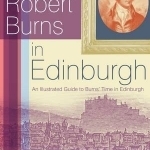
Robert Burns in Edinburgh: An Illustrated Guide to Burns' Time in Edinburgh
Jerry Brannigan, John McShane and Alexander David
Book
A reader-friendly, fully illustrated colour guide to Robert Burns' time in Edinburgh, with fresh...

